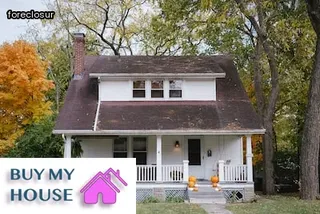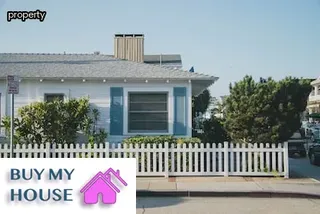The assessment of homeowners associations (HOAs) and condominium owners associations (COAs) are an integral part of community living in Oklahoma. It is the responsibility of the homeowner to pay their dues on time, or face a variety of consequences.
Late payments can cause interest to be added, membership rights to be revoked, and even legal action if the dues are not paid in full. The amount owed will depend on the terms and regulations set forth by the HOA or COA.
Homeowners should understand how assessments function so they remain in good standing with their respective association. Typically, assessments cover maintenance costs for common areas like clubhouses, swimming pools, tennis courts and other amenities shared among all members of the association.
They also cover insurance premiums that protect the community from liability claims as well as legal expenses associated with disputes between members over HOA related matters. It is important that homeowners stay up to date on their current dues, as well as any changes to HOA or COA regulations that may affect them financially.
Understanding how assessments work can help Oklahoma homeowners avoid costly penalties associated with unpaid dues and maintain a healthy relationship with their respective association.

In Oklahoma, Homeowners Associations (HOA) are required to follow a specific protocol when it comes to assessments that are unpaid. Homeowners need to be aware of the consequences for not keeping up with their dues and the notice requirements that HOAs must follow in order to collect on delinquent accounts.
HOAs can provide written notice of any unpaid assessments at least 30 days prior to filing a lien against a property, which is also known as an assessment lien. This written notice should include details of the amount due as well as any interest charges or other fees incurred by not paying on time.
If a homeowner fails to pay the full balance within 30 days of receiving this notice, then the HOA may file an assessment lien against the property, which will remain until all past-due amounts are paid in full. An assessment lien could lead to foreclosure if the debt remains unpaid and could also affect any future attempts at taking out loans or obtaining credit.
Therefore, it is important for homeowners in Oklahoma to stay up-to-date with their HOA dues and take necessary action if they receive written notification from their HOA regarding delinquent payments.
When it comes to homeowners’ associations (HOAs) and condominium owners’ associations (COAs) in Oklahoma, unpaid dues can lead to serious consequences for homeowners. One of the most common consequences is a lien placed on the property by the association.
Exploring what charges are included in the lien is important for homeowners to understand their rights and obligations. Generally, an HOA or COA lien includes assessments that are due, late fees, interest, legal costs of filing and enforcing the lien, and any other costs related to collecting unpaid dues.
While laws regarding liens may vary from state to state and even among HOAs or COAs within a state, understanding what constitutes a lien is essential for homeowners in Oklahoma. Additionally, HOAs or COAs may be able to foreclose on a home after a certain period of nonpayment if they have followed all applicable procedures as outlined by law.
It is important for homeowners to become familiar with their HOA or COA rules and regulations so they can avoid these consequences.

Navigating HOA & COA Foreclosures in Oklahoma can be a difficult and overwhelming process for homeowners. It is important to understand the consequences of unpaid HOA dues in order to protect your home from foreclosure.
Unpaid dues can lead to fines, fees, and liens placed on the property, which could result in the homeowner losing their house if not addressed quickly. Homeowners should also be aware that Oklahoma law allows HOA or COA associations to foreclose on a home if dues remain unpaid for more than two consecutive years.
Homeowners need to be proactive about paying their HOA dues before the situation escalates, or take the necessary steps to resolve the issue as quickly as possible in order to avoid foreclosure. Understanding how HOA and COA foreclosures work in Oklahoma is essential for homeowners who want to protect their homes from potential losses due to unpaid dues.
Examining the impact of an HOA or COA lien on your mortgage is an important step for homeowners in Oklahoma. Unpaid dues to a Homeowners Association (HOA) or Condo Owners Association (COA) can lead to the accrual of liens on a homeowner's property, which can have serious consequences.
A lien can affect a homeowner's credit score and their ability to obtain financing for future purchases or refinance existing mortgages. Additionally, liens can prevent homeowners from selling their properties until the debt is paid off, as potential buyers may be unwilling to assume responsibility for past due payments.
Liens also increase legal costs associated with transferring ownership of a property and complicate title searches. Furthermore, HOAs or COAs may even choose to foreclose on a property if dues remain unpaid for an extended period, resulting in financial losses and eviction for the homeowner.
It is therefore essential that all Oklahoma homeowners familiarize themselves with their HOA/COA obligations and stay current with payments in order to avoid the consequences of unpaid dues.

Facing a COA or HOA foreclosure in Oklahoma can be a difficult and stressful situation for homeowners. It is important to understand the consequences of unpaid HOA dues, so that property owners can take proactive steps in order to prevent such an event from occurring.
If a homeowner fails to pay their HOA dues, they may face fines and other financial penalties. In addition, the HOA may file a lien against the property which could lead to its eventual foreclosure if not paid off.
Homeowners should make sure they are up-to-date with their payments in order to avoid any potential foreclosures. Additionally, it is important for homeowners to review their homeowner’s association agreement in order to understand what is expected of them regarding payment of dues and fees.
Furthermore, it is a good idea for homeowners facing a COA or HOA foreclosure to seek legal advice from an experienced attorney who can help them navigate the process and negotiate with the association. Taking action early on can help reduce the risk of foreclosure proceedings being initiated against them.
Homeowners associations (HOAs) are responsible for managing the maintenance and upkeep of shared areas in a neighborhood. While the fees that HOAs collect from homeowners within their community provide the necessary funds to keep these areas up to date, some homeowners are failing to pay their dues.
This can lead to various consequences for those who live in Oklahoma and their associated HOAs. There are many key considerations that HOAs must be aware of when it comes to unpaid dues, including legal action, late payment fees, liens against property, and collections agencies.
Legal action is often considered a last resort by HOAs; however, if a homeowner has failed to rectify their debt within a certain time frame then this may become necessary. Late payment fees can also help incentivize homeowners to pay their dues on time, while liens against property enable an HOA to recoup money owed without the need for court proceedings.
Reaching out to collections agencies may also be an effective way for HOAs to get what they’re owed. It is important for HOAs in Oklahoma to be aware of all available options when it comes to dealing with unpaid dues so they know how best to handle such cases in the future.

When it comes to condominiums, there are some key considerations that all homeowners in Oklahoma should be aware of when it comes to unpaid Homeowners Association (HOA) dues. First, failure to pay HOA dues can result in legal action being taken against the homeowner, including foreclosure and/or a lien being placed on the property.
Additionally, these fees cover maintenance costs such as landscaping, repairs and insurance for common areas. Furthermore, HOA fees also help fund amenities such as pools or clubhouses.
Therefore, when homeowners don't pay their dues on time it can reduce the amount of money available for upkeep or improvements to the development. Finally, not paying HOA dues can also have an impact on resale value as potential buyers may be wary of purchasing a property with outstanding payments due.
For this reason, it is important for all homeowners in Oklahoma to stay current with their HOA fees and understand the consequences of not doing so.
Oklahoma Homeowner's Associations (HOAs) are subject to corporate governance laws that determine how they manage the communities they serve. Understanding these laws and their consequences is essential for homeowners in Oklahoma who may be liable for unpaid HOA dues.
Corporate governance under Oklahoma HOA laws includes an array of duties and obligations, such as the requirement to maintain funds, collecting assessments from homeowners, enforcing community rules and regulations, and creating budgets. These corporate governance responsibilities are outlined in the Oklahoma Statutes Title 11-11A and provide HOAs with the authority to issue liens, foreclose on properties for nonpayment of dues, or assess fines for violations.
In addition, HOAs must adhere to a board of directors composed of elected members tasked with overseeing operations according to the bylaws. Finally, HOAs must submit annual financial statements outlining their income and expenses while providing a detailed account of all transactions involving dues payments.
By familiarizing themselves with corporate governance under Oklahoma HOA laws, homeowners can better understand their rights and liabilities when it comes to unpaid HOA dues.

Homeowners associations (HOAs) in Oklahoma must abide by the Fair Housing Act, which prohibits discrimination based on race, color, religion, sex, national origin, familial status or disability. It is important to remember that these laws extend to HOAs as well and are enforced by the Department of Housing and Urban Development (HUD).
In addition, HOAs are required to provide reasonable accommodations for people with disabilities. Unpaid HOA dues can lead to serious consequences for homeowners in Oklahoma if they do not comply with their HOA's rules.
The HOA may take legal action against a homeowner if they fail to pay their dues and fines. This includes filing a lawsuit and foreclosing on the home.
Furthermore, unpaid dues can result in late fees or interest charges and damage the homeowner's credit score. In order to protect their rights and ensure that their home remains safe from foreclosure, homeowners should always make sure that they are up-to-date with payments and understand what their rights are under the Fair Housing Act.
The Servicemembers Civil Relief Act (SCRA) is an important law that provides financial protection to members of the U. military, including those in Oklahoma.
According to the SCRA, servicemembers may have their mortgage debt or interest rates reduced while they are on active duty, and they are also given additional time to pay Homeowner Association (HOA) dues or utility bills if they are facing financial hardship due to their military service. Furthermore, a violation of the SCRA could result in substantial civil penalties for anyone who attempts to collect HOA dues from an active-duty servicemember without first obtaining a court order.
It is therefore essential for homeowners in Oklahoma to understand how the SCRA can help protect them from unpaid HOA dues and what steps need to be taken if an attempt is made to collect such dues without a court order.

When it comes to paying HOA dues, homeowners in Oklahoma need to be aware of the consequences of not paying on time. Late payments can lead to substantial debt collection fees which may be subject to legal action.
It is important for homeowners to understand their rights when it comes to debt collection, and what options they have if they are unable to make their payments on time. In some cases, the HOA might be able to negotiate a payment plan with the homeowner where they can pay off their debt over an extended period of time without incurring any additional fees.
However, if the homeowner does not comply with the terms of this agreement or fails to make their payments within a reasonable amount of time, then the HOA may pursue legal action that could result in further penalties such as late fees, interest charges and even foreclosure proceedings. Understanding these implications ahead of time is key for avoiding any potential financial hardship or legal issues down the line.
Homeowners associations (HOAs) in Oklahoma adopt amendments to their governing documents to ensure that dues are paid on time and in full. This is an important way for HOAs to remain financially solvent, as unpaid dues can have a number of serious consequences for the association and its members.
Before agreeing to any amendments to their governing documents, homeowners should understand how such changes could affect them, including whether it would be necessary to pay additional fees or fines. It may also be beneficial for homeowners to consult legal counsel or a qualified HOA management professional prior to adopting any amendments in order to ensure that their rights and interests are properly protected.
Additionally, homeowners should make sure they are aware of any specific regulations pertaining to the adoption of amendments in their particular state or municipality before signing off on the changes. Taking these steps can help ensure that everyone involved understands the ramifications of any proposed amendment and is prepared for the potential consequences if dues remain unpaid.

Non Profit and Tax Exempt Organizations have many similarities, but there are also several key differences that homeowners in Oklahoma need to consider when it comes to unpaid Homeowners Association (HOA) dues. For example, Non Profit Organizations are focused on providing a service or social good and may be established by members of the community for charitable purposes.
On the other hand, Tax Exempt Organizations (TEO) are exempt from paying taxes and typically have a primary purpose related to religious, educational or charitable activities. In both cases, however, the failure to pay HOA dues can lead to consequences such as late fees and interest charges on unpaid balances.
Furthermore, unpaid dues may lead to legal action being taken against the homeowner which could result in a lien being placed on the property until payment is received in full. It is therefore important for homeowners in Oklahoma to understand the consequences of not paying HOA dues and familiarize themselves with both Non Profit Organizations and Tax Exempt Organizations before deciding which is right for them.
In Oklahoma, landscapers are legally obligated to adhere to certain regulations and standards. These requirements are outlined by both the state's Department of Agriculture and the Oklahoma State Board of Examiners for Landscape Architects.
All landscapers must be licensed in order to do business in Oklahoma, and must also have a valid business license issued by the state. Landscaping activities must also comply with applicable federal, state, and local laws.
Furthermore, any landscape contractors hired by homeowners must provide proof of liability insurance coverage as required by law. In addition, all landscapers are expected to maintain an adequate level of quality assurance throughout their services.
This includes abiding by appropriate safety guidelines and using top-notch materials when performing their duties on residential properties. Lastly, it is important to note that unpaid HOA dues may lead to legal action taken against homeowners who fail to keep up with their financial obligations towards the association.

In Oklahoma, Homeowners’ Associations (HOAs) require members to pay dues in order to maintain services and facilities. When dues are unpaid, it can create a financial burden on the HOA and other homeowners.
Depending on the bylaws of the HOA, not paying dues could lead to penalties such as late fees or even foreclosure. It is important for homeowners in Oklahoma to understand their rights and obligations related to delinquent HOA dues so they can take action to avoid any potential consequences.
Homeowners should also consider the impact of their failure to pay dues on all members of their community. Understanding how delinquency affects HOAs will help ensure that Oklahoma homeowners remain current with their payments and avoid any negative effects associated with unpaid dues.
When homeowners in Oklahoma fail to pay their Homeowners’ Association (HOA) or Community Owners’ Association (COA) dues, there are important consequences that they need to be aware of. Defaulting on HOA or COA payments can have a major impact on a homeowner’s mortgage and even lead to foreclosure.
Many lenders require that borrowers maintain their regular HOA/COA payments in order to remain current on their mortgages. If the payments are not made, the lender may take action against the homeowner, including cutting off access to loans and refinancing options or filing for foreclosure.
Understanding how mortgages are affected by HOAs and COAs is essential for all homeowners in Oklahoma who want to keep their mortgage current and protect their investment.

In Oklahoma, Homeowners Associations (HOAs) and Community Owners Associations (COAs) are facing increasing challenges when attempting to collect unpaid dues from their members. This is becoming an increasingly prevalent issue, as many homeowners struggle to keep up with the payments often required for living in these areas.
As a result, HOAs and COAs must devise new strategies for collecting these unpaid dues without severely penalizing those who are unable to make payments on time. This can be difficult due to the fact that HOAs and COAs have limited authority over the members they govern and cannot always take legal action against them if they do not pay their fees.
Furthermore, HOAs and COAs may face financial difficulties due to the lack of payment received from their members, leading to fewer resources being available to maintain or improve the community they represent. As such, it is important for all homeowners in Oklahoma to understand the consequences of not paying HOA or COA dues on time in order to avoid any potential penalties that may be incurred.
In Oklahoma, HOAs and COAs are legally permitted to take action against members if they fail to pay their dues. This could include a lien on their property or taking the homeowner to court.
Depending on the terms of the HOA/COA agreement, members may be liable for late fees and other penalties associated with unpaid dues. Members have the right to sue an HOA/COA if they believe that it has acted unfairly or unlawfully, although certain criteria must be met before taking legal action.
Before filing a lawsuit, members should ensure that they understand their rights under Oklahoma law and take any necessary steps to resolve the issue without resorting to litigation. They should also consider consulting with an experienced attorney who can advise them on the best course of action in their particular case.

When it comes to unpaid homeowner association (HOA) dues in Oklahoma, most homeowners are unaware of the potential consequences they could face if they don't stay on top of their payments. To prevent litigation with HOAs and COAs in Oklahoma, it is important for homeowners to be aware of their rights and responsibilities.
Being familiar with the rules and regulations outlined by their HOA or COA can help homeowners know when dues are due and how much should be paid. Homeowners should also take proactive steps to stay in communication with their HOA or COA about any payment issues that may arise.
Additionally, setting up an automatic payment plan can ensure that payments are made on time and avoid potential legal action from an HOA or COA. Finally, understanding foreclosure procedures in the state of Oklahoma can help protect against a homeowner’s property being affected if dues remain unpaid for too long.
Taking these steps can help prevent litigation between HOAs and COAs in Oklahoma, keeping both parties informed and protecting homeowners from potentially serious financial consequences.
If you’re a homeowner in Oklahoma, you need to know the consequences of not paying your Homeowners Association (HOA) dues. Unpaid HOA dues can have serious financial and legal implications for homeowners in Oklahoma.
If HOA dues go unpaid, association fees will remain due and interest will accrue until the full amount is paid in full. The owner may also be subject to fines or late fees imposed by the HOA for failure to pay their dues on time.
The HOA may also file a lien against the property if the unpaid balance remains outstanding for an extended period of time. In addition, the homeowner may be held liable for all attorney's fees and court costs incurred by the HOA in collecting overdue assessments or enforcing its governing documents.
It's important to remember that these consequences can be avoided by simply staying current on your HOA dues payments.

In Oklahoma, homeowners associations (HOA) are required to abide by the guidelines of the Oklahoma Homeowners Association Act (OHAA). The OHAA outlines the rules and regulations that all HOAs must follow in order to maintain their status as a non-profit organization.
This includes requirements for collecting dues, enforcing covenants and restrictions, managing funds, and providing notice of HOA meetings. The OHAA also states that a homeowner who fails to pay their HOA dues can be subject to late fees, interest on unpaid balances, and legal action by the HOA.
Additionally, an HOA may impose fines or suspend privileges such as access to common areas or other amenities if dues remain unpaid. It is important for homeowners in Oklahoma to understand their rights and responsibilities under the OHAA so that they can avoid any potential consequences of not paying their HOA dues.
In Oklahoma, homeowners need to be aware of the potential consequences for unpaid HOA dues. Homeowners who want to dissolve their HOA in Oklahoma may follow a few steps.
Firstly, if there is an existing contract with the HOA, it must be honored. If the homeowner has fulfilled their payment obligations and all other conditions of the contract, they can then move forward with dissolving the HOA.
The next step is to hold a meeting with the remaining homeowners and decide whether or not to dissolve the HOA. In order to do so, a quorum of members must be present at the meeting and a majority vote in favor of dissolution must be obtained.
Once this has been achieved, appropriate legal documents must be filed with local authorities in order to officially dissolve the HOA. Homeowners should consult with an attorney if they have any questions about how to properly dissolve an HOA in Oklahoma before taking action.
The average Homeowners Association (HOA) fee in Oklahoma is typically between $25 and $200 per month, depending on the size of the property and the features of the subdivision. However, if homeowners fail to pay their HOA dues, there can be serious consequences.
Unpaid HOA fees can result in late fees or increased interest rates, fines, and even potential foreclosure proceedings. As such, it’s important for homeowners in Oklahoma to understand the financial risks associated with failing to pay their HOA dues on time and in full.
Knowing what the average HOA fee is in Oklahoma will also help ensure that homeowners are aware of how much they should expect to pay each month.
A: If the homeowner does not pay their HOA dues and becomes a lienholder, the HOA may place a lien on the property. The lien will take priority over any first mortgage on the property.
A: In Oklahoma, failure to pay HOA dues may result in fines, liens placed on the property, and other legal action.
A: County Clerks in Oklahoma may pursue delinquent HOA dues by filing civil suits or taking other civil actions against homeowners who have not paid their dues.
A: Yes, the by-laws and CC&Rs of a Homeowners' Association are legally binding information in Oklahoma. Failure to abide by the established rules and regulations can lead to legal action against the homeowner for unpaid dues.